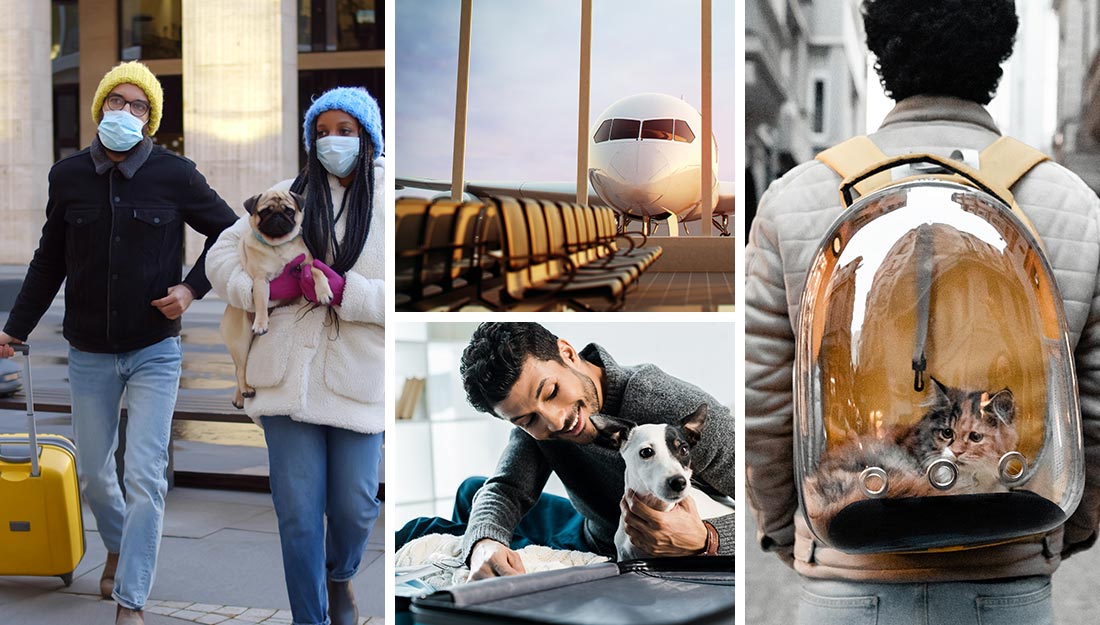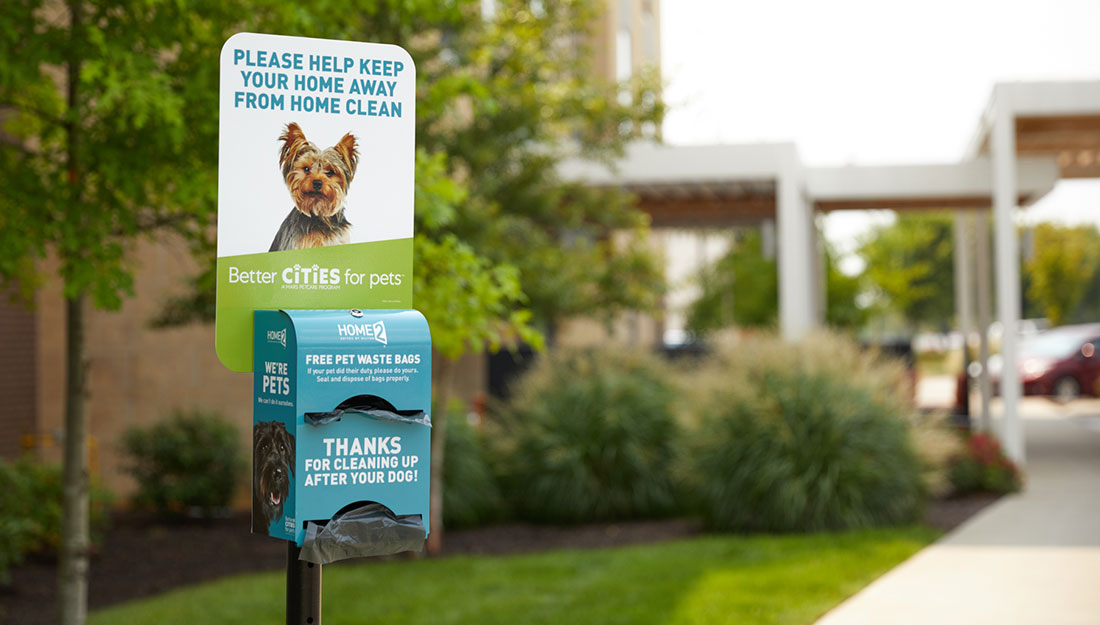Pets make life better. They’re our best friends, exercise buddies and stress relievers. But some people worry about pets in public places. To help your neighbors and other guests recognize how great your dog or cat is, be sure to be a good neighbor. Try these tips.
- Clean up – do your duty when your pet does theirs. Always clean up pet waste and dispose of waste bags in the appropriate garbage bin. If your pet has an accident inside, clean it up and alert the hotel so they can make sure all cleaning protocols are met.
- Avoid accidents – check this article about how to avoid and handle accidents when traveling with your dog or cat.
- Register your pet – make sure you check with your hotel on protocols for pet check-in.
- Leash up – keeping pets leashed in public spaces makes your neighbors more comfortable, and helps you keep control even if your pet sees something they want to chew on or chase.
- Keep watch – never leave a pet unattended in a public space, even if it’s just for a few minutes to grab something from your room. Always keep an eye on pets to keep them and others safe.
- Plan for play – bring toys that will help keep your pet entertained while in your hotel room. Check this article for more ways to keep pets happy – especially when you are away from your room.
- Keep the noise down – train your dogs to minimize barking, whining and other noisy activity. If you have cats who vocalize in the night, find ways to distract them to minimize noise while neighbors are sleeping.
- Groom often – not only is regular grooming important for your pet’s health, it also helps you be a better neighbor. A well-brushed coat is less likely to shed last week’s rainy-day mud in the hallway. Well-trimmed nails are less likely to leave scratch marks.
- Minimize damage – scratching is a normal, instinctive behavior for cats, so include a scratching toy in what you pack. Train dogs not to scratch at doors or other areas. Also, train dogs and cats not to chew on plants, cords or other items that could be harmful.
- Know your pet – learn to read your pet’s body language so you can better predict when he or she might be more or less open to meeting someone new. When you recognize and respect how your pet is feeling, it helps protect everyone.
- Have fun – active play is good for your pet’s well-being and yours. A well-exercised dog is less likely to bark and whine, which could disturb your neighbors. Exercise helps eliminate boredom too, so your dog or cat may be less likely to scratch or chew on inappropriate objects.





 Your Privacy Choices
Your Privacy Choices